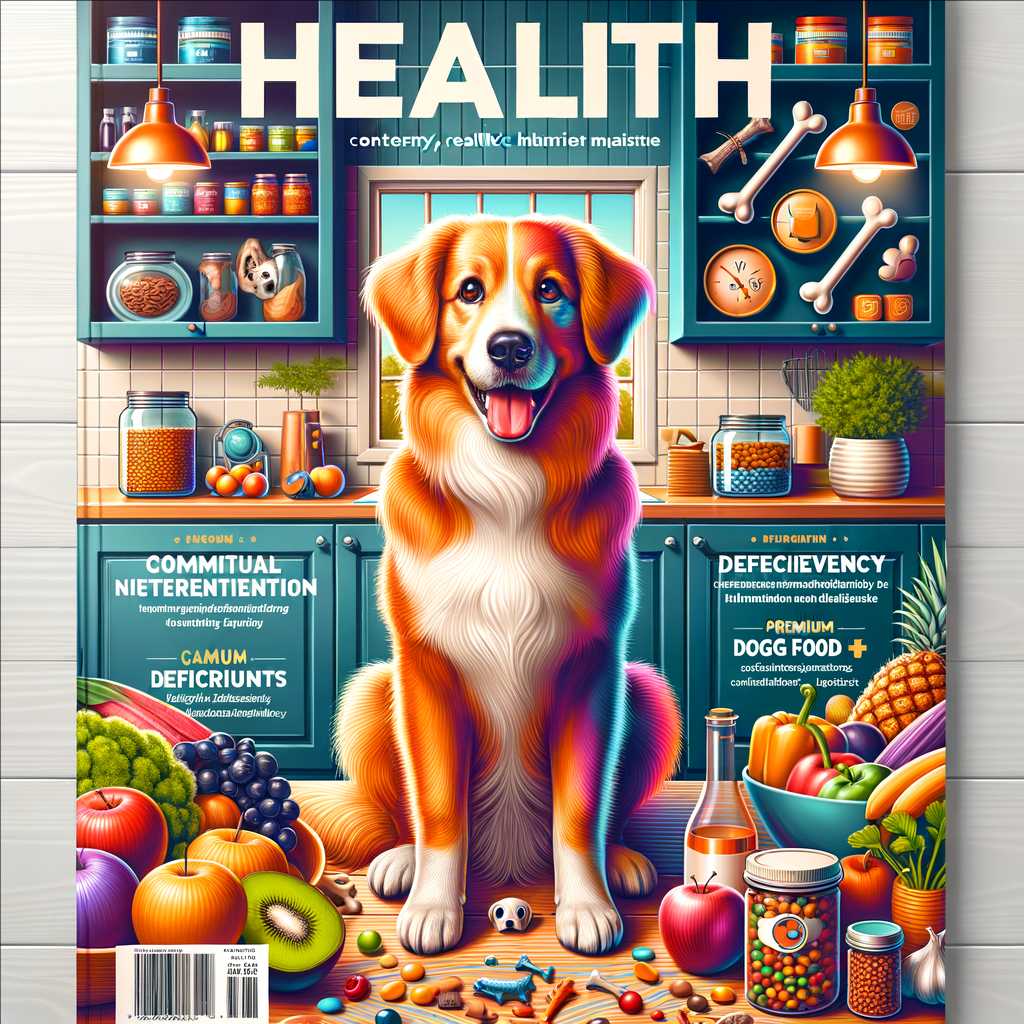Common Nutritional Deficiencies in Dogs and How to Avoid Them
1. Protein Deficiency
Understanding Protein’s Role
Protein is the building block of life for dogs. It plays an essential role in growth, muscle development, immune function, and energy production. When a dog doesn’t get enough protein, it can lead to severe health issues, including muscle wasting and a compromised immune system.
Signs of Protein Deficiency
- Weight Loss: You might notice your dog shedding pounds despite a normal feeding routine.
- Poor Coat Condition: A dull coat, excessive shedding, or even skin sores can indicate a lack of essential protein.
How to Avoid Protein Deficiency:
- Choose Quality Dog Food: Select high-quality dog food that contains adequate protein sources, such as meat or fish, as primary ingredients.
- Consult Your Veterinarian: Get personalized recommendations regarding your dog’s protein needs based on age, size, activity level, and health conditions.
2. Vitamin A Deficiency
The Importance of Vitamin A
Vitamin A is crucial for numerous bodily functions, including maintaining vision health, skin integrity, reproduction, and proper immune function. A deficiency in vitamin A can lead to severe complications over time.
Symptoms of Vitamin A Deficiency
- Night Blindness: Your dog may struggle to see in dim light, indicating potential vision problems.
- Skin Issues: Symptoms like dryness or flaking skin may suggest inadequate vitamin levels.
How to Ensure Sufficient Vitamin A Intake:
- Incorporate Beta-Carotene Foods: Include foods rich in beta-carotene, such as carrots and sweet potatoes, into your dog’s homemade meals.
- Select Fortified Commercial Foods: Look for dog foods specifically fortified with vitamins tailored for their life stages.
3. Calcium Deficiency
Why Calcium Matters
Calcium is essential for strong bones and teeth, nerve function, and proper blood clotting. Puppies are particularly vulnerable during rapid growth phases and can suffer from significant health issues if calcium levels are inadequate.
Recognizing Calcium Deficiency
- Weak Bones: Increased fractures or unusual bone deformities may indicate a calcium shortage.
- Muscle Tremors: Unexplained muscle shaking can be a sign of calcium imbalance.
How to Prevent Calcium Deficiency:
- Adequate Puppy Formulas: Ensure that your puppy’s formula is specifically designed to provide adequate levels of calcium for growth.
- Balanced Adult Diet: Maintain a balanced diet as adult dogs can suffer from calcium issues too. Avoid over-supplementation, which could lead to kidney stones.
4. Omega Fatty Acid Deficiencies
Benefits of Omega Fatty Acids
Omega fatty acids are vital for healthy skin and coat, cognitive function, and reducing systemic inflammation — especially important for aging dogs. They play a pivotal role in maintaining overall health.
Symptoms Indicating Omega Fatty Acid Shortage
- Dry Skin & Itching: Excessive scratching, flaky skin, or chronic skin issues often point towards an omega imbalance.
- Cognitive Decline: Older dogs might show signs of confusion or disorientation due to insufficient cognitive support.
How to Incorporate Omega Fatty Acids:
- Fish Oil Supplements: Introduce fish oil supplements into your dog’s diet after consulting your vet.
- Quality Dog Food: Opt for dog foods formulated with sustainable sources of omega fatty acids like salmon or flaxseed oil.
5. Iron Deficiency
The Role of Iron
Iron is integral to producing hemoglobin, which facilitates oxygen transport in the blood and is essential for your dog’s energy levels. A lack of iron can lead to anemia and fatigue.
Identifying Iron Depletion
- Fatigue: If your usually energetic dog is lethargic and shows signs of fatigue, it might have iron deficiency.
- Pale Gums: Healthy gums should be a vibrant pink; pale gums could indicate a potential iron deficiency requiring immediate veterinary attention.
Ways To Prevent Iron Shortages:
- Protein-Rich Meats: Feed high-quality meats regularly, with beef liver being an excellent source of iron.
- Incorporate Leafy Greens: Safely add iron-rich leafy greens to home-cooked meals after ensuring they’re safe for dogs.
—
Conclusion
Understanding these common nutritional deficiencies in dogs and taking proactive steps toward prevention can pave the way to a healthier lifestyle for your four-legged friend. After all, the right nutrition is essential for their well-being, vitality, and happiness.
Don’t forget, consulting with your veterinarian ensures you receive tailored dietary recommendations suited to your dog’s unique health needs. By prioritizing their diet, you’re investing in their quality of life and happiness!
If you found this blog helpful, please share it with fellow dog owners. Have you ever had concerns about your dog’s nutrition? Let us know in the comments below! Happy feeding!
news via inbox
Nulla turp dis cursus. Integer liberos euismod pretium faucibua





